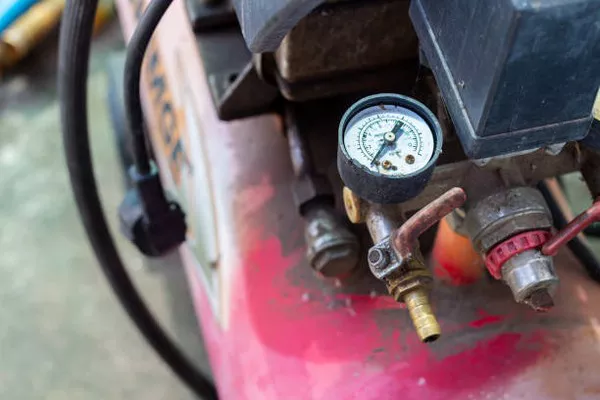Heating, Ventilation, and Air Conditioning (HVAC) systems are integral components of modern buildings, providing a comfortable and controlled indoor environment. Among the key elements within these systems, the HVAC compressor stands out as a critical component responsible for managing temperature and maintaining optimal conditions. In this article, we will delve into the workings of an HVAC compressor, its essential functions, and its pivotal role in the overall efficiency of HVAC systems.
Understanding HVAC Compressors:
At the heart of an HVAC system lies the compressor, a device that plays a crucial role in the refrigeration cycle. Whether it’s in residential, commercial, or industrial settings, HVAC compressors are designed to regulate the temperature by compressing and circulating refrigerant throughout the system. This process is vital for both heating and cooling applications, making the compressor a versatile and indispensable component.
How Does an HVAC Compressor Work?
The basic principle behind HVAC compressors is the compression and expansion of refrigerant gases to absorb and release heat. The typical refrigeration cycle begins with the compressor, which is usually located in the outdoor unit of an HVAC system. As the compressor starts its operation, it draws low-pressure, low-temperature refrigerant vapor from the evaporator coil. This vapor is then compressed, resulting in a high-pressure, high-temperature gas.
The high-pressure gas is subsequently pumped into the condenser coil, located in the outdoor unit. In the condenser, the refrigerant releases heat to the surrounding air, causing it to condense into a high-pressure liquid. This liquid then flows through an expansion valve or capillary tube, where it undergoes a rapid expansion, leading to a decrease in both pressure and temperature. The low-pressure, low-temperature refrigerant then returns to the evaporator coil to begin the cycle anew.
Key Functions of HVAC Compressors:
Compression of Refrigerant: The primary function of an HVAC compressor is to compress the refrigerant vapor, increasing its pressure and temperature. This compression is essential for the transfer of heat between the indoor and outdoor units of the HVAC system.
Heat Absorption and Release: Compressors facilitate the absorption of heat from the indoor environment when in cooling mode. Conversely, in heating mode, the compressor releases heat into the indoor space. This dual functionality allows HVAC systems to regulate temperature effectively.
Maintaining Refrigerant Flow: Compressors play a critical role in maintaining a continuous flow of refrigerant throughout the HVAC system. The proper circulation of refrigerant is essential for efficient heat exchange and temperature control.
Energy Efficiency: Modern HVAC compressors are designed with a focus on energy efficiency. Variable-speed compressors, for example, can adjust their speed based on the heating or cooling demands, optimizing energy consumption and overall system performance.
Temperature Control: The compressor’s ability to regulate the temperature within a space is fundamental to the comfort and well-being of occupants. Whether it’s maintaining a cool temperature in the summer or providing warmth in the winter, the compressor is at the forefront of temperature control.
Importance of Proper HVAC Compressor Maintenance:
Given the pivotal role HVAC compressors play in the overall functionality of temperature control systems, proper maintenance is crucial to ensure their longevity and efficiency. Regular inspections, cleaning, and lubrication of compressor components help prevent wear and tear, reducing the risk of breakdowns and costly repairs.
Moreover, maintaining the right refrigerant levels and ensuring a clean and unobstructed airflow around the outdoor unit contribute significantly to the optimal performance of the compressor. Routine inspections by qualified HVAC technicians can identify potential issues early on, allowing for timely repairs and avoiding system failures.
Conclusion:
In conclusion, the HVAC compressor stands as a cornerstone in the world of heating, ventilation, and air conditioning. Its ability to compress and circulate refrigerant is the linchpin for effective temperature control, making it an indispensable component in both residential and commercial HVAC systems. As technology advances, the efficiency and functionality of HVAC compressors continue to improve, contributing to more energy-efficient and environmentally friendly HVAC solutions. Understanding the inner workings of these compressors not only enhances our appreciation for the complexity of HVAC systems but also underscores the importance of proper maintenance to ensure their reliability and longevity.

